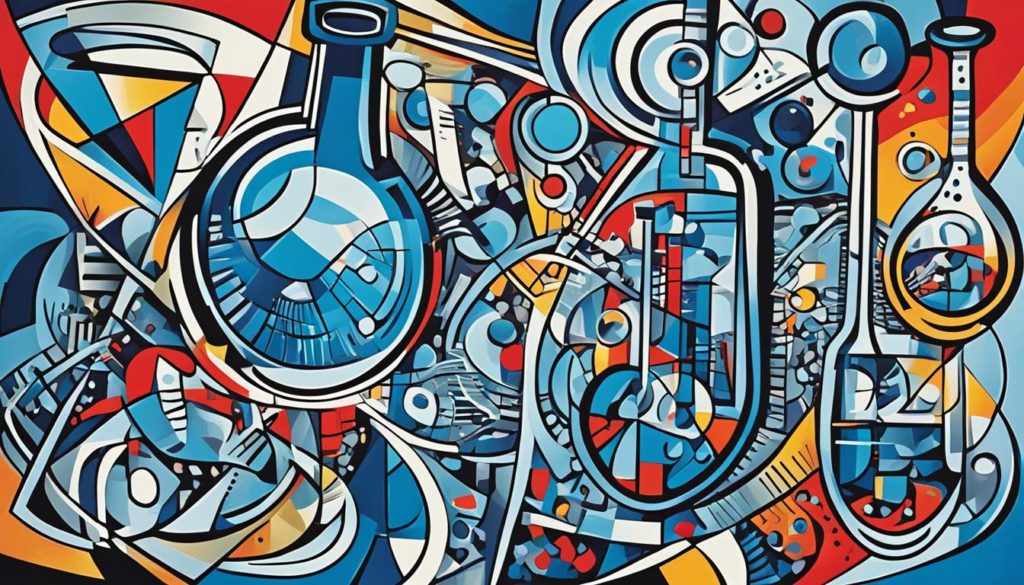Did you know that drinking a lot of alcohol raises the risk of prostate cancer by 20%? This fact highlights the importance of knowing how alcohol and prostate health are connected. It shows why lifestyle choices matter.
It’s important to understand the link between alcohol and prostate cancer. Studies have shown that all types of alcohol have harmful compounds. These compounds can damage DNA and help cancer cells grow. Paying attention to prostate cancer risk factors has led to health advice. This advice usually says to drink less alcohol or not at all.
Groups like the Dietary Guidelines for Americans and the CDC suggest drinking less alcohol. This is to help prevent many kinds of cancer, including prostate cancer. Learning more about these links is key. It helps us create better ways to prevent cancer.
Key Takeaways
- High alcohol consumption is linked to a 20% increased risk of prostate cancer.
- Alcohol contains compounds that can damage DNA, leading to cancerous cell growth.
- Moderation or avoidance of alcohol is recommended to reduce prostate cancer risk.
- Dietary guidelines stress the importance of limited alcohol intake for cancer prevention.
- Understanding prostate cancer risk factors is crucial for effective prevention.
Introduction to the Link Between Alcohol and Prostate Cancer
The connection between drinking alcohol and the risk of prostate cancer is a hot topic. It’s key to know how alcohol affects prostate cancer for both preventing it and making smart choices about drinking.

What Research Says
There are many studies on alcohol and prostate cancer, but they don’t all agree. Some say drinking a lot may raise the risk of getting prostate cancer. Others see no clear link. Or say a little alcohol might not do much harm. This shows how complicated the link between alcohol and prostate cancer can be.
Why It’s Important to Understand
Understanding alcohol’s impact on prostate cancer matters a lot. It helps people decide how much to drink with their health in mind. Also, it guides new policies and public health efforts to manage prostate cancer risks linked to drinking.
Understanding Alcohol Prostate Cancer Risk
The link between drinking alcohol and getting prostate cancer is tricky. We’ll explore how alcohol acts as a carcinogen. It affects how cells grow in the prostate.
The Role of Alcohol as a Carcinogen
Alcohol is known to be a carcinogen because of acetaldehyde, its metabolite. Our bodies make acetaldehyde from ethanol in drinks. This substance can attach to DNA, leading to harmful mutations. These mutations can spark the start of cancer.

Impact on DNA and Cell Growth
Alcohol’s harm goes beyond DNA damage. Acetaldehyde messes with DNA repair, causing more mutations. These changes upset normal cell activities. Plus, breaking down ethanol makes ROS. These can harm DNA even more. This damage paves the way for cancer by speeding up cell growth.
| Factor | Effect |
|---|---|
| Acetaldehyde | Direct DNA Damage |
| ROS | Oxidative Stress |
| Cell Growth Disruption | Increased Cancer Risk |
To understand alcohol and cancer, we see their deep connection. Cutting down on alcohol might lower prostate cancer risk. It also helps prevent other diseases related to alcohol.
Effects of Alcohol on Prostate Health
The effects of alcohol on prostate health have been closely studied. Experts are worried about how alcohol, especially ethanol, harms prostate tissue. This concern is big in the medical world.
Mechanisms of Damage
Alcohol harms prostate health mainly by turning into acetaldehyde, a harmful substance. Acetaldehyde can mutate the DNA in prostate cells, leading to cancer. Thus, alcohol and prostate cancer risks are higher because of oxidative stress and inflammation in prostate tissue.
Impact of Ethanol
Ethanol in drinks affects cell functions in the prostate. It messes up how cells grow and fix themselves. This issue can cause abnormal cells to grow, raising cancer risks. Studies show that drinking a lot over time makes prostate problems worse. So, it’s key to drink less to lower these risks.
Understanding how alcohol affects prostate health means looking at ethanol’s damage over time. Ethanol’s toxic effects can harm the prostate’s cells a lot.
- Alcohol turns into acetaldehyde, leading to DNA changes.
- Acetaldehyde causes oxidative stress and inflammation.
- Long-term alcohol use hurts cell functions and ups cancer risk.
| Factors | Impact on Prostate Health |
|---|---|
| DNA Mutations | Increased mutation rates due to acetaldehyde exposure. |
| Oxidative Stress | Elevates oxidative stress within prostate tissues. |
| Inflammation | Leads to chronic inflammation, contributing to cancer risks. |
| Cellular Function Disruption | Interferes with normal cell growth and repair mechanisms. |
Research Findings on Alcohol and Prostate Cancer
The link between drinking alcohol and prostate cancer risk has been deeply studied. Many reports show different outcomes. This part looks at detailed analyses and comparisons of prostate cancer research, showing supportive and differing data.
Review of Meta-Analyses and Studies
Research on prostate cancer and alcohol shows mixed results. Some research connects high alcohol use with a higher chance of getting prostate cancer, especially the more aggressive types. These results show why it’s key to do big studies to really grasp how alcohol affects prostate health.
Conflicting Results and Interpretations
On the other hand, some studies find no clear link. They even suggest light drinking might somewhat protect against prostate cancer. This variance makes it hard for researchers and doctors to give straightforward advice.
It’s clear we need more research on prostate cancer. Scientists aim to figure out the exact role of alcohol in prostate cancer risk.
Alcohol Consumption Patterns and Prostate Cancer Risk
Understanding how alcohol affects prostate cancer risk is key. Studying drinking patterns helps us see the connection. Drinking habits from the past and now both matter. Some ways of drinking are more dangerous.
Past Drinking Habits vs. Current Consumption
Research has focused on how past drinking affects cancer risk. Heavy drinking before can cause problems later, increasing cancer risk. But, changing how much you drink now can help. Cutting back can lessen some bad effects of previous heavy drinking.
Impacts of Binge Drinking
Binge drinking is closely tied to prostate cancer risks. It means drinking a lot at once, which spikes blood alcohol levels. This kind of drinking is risky right away and can lead to longer-term health issues, including prostate cancer. Stopping binge drinking is crucial for lowering cancer risk and boosting health.
Impact of Alcohol on Prostate Cancer Progression and Mortality
Research shows that alcohol-induced prostate cancer progression seriously affects patient survival. High alcohol use is linked to greater risks of the disease. It leads to faster progression and higher death rates from prostate cancer.
An extensive review highlights the dangers of alcohol on prostate cancer outcomes. This study connects alcohol usage with higher mortality. It stresses the need for deeper understanding of this link.
Observations tie heavy drinking to more prostate cancer deaths. But, findings vary across studies. This shows a need for more research to confirm these results.
How alcohol is consumed matters a lot. For example, binge drinking poses serious risks. It could worsen prostate cancer risks. Thus, we must educate people about how drinking affects prostate health.
Here’s a brief summary of studies on alcohol and prostate cancer:
| Aspect | Findings |
|---|---|
| High Alcohol Consumption | Increases risk of prostate cancer mortality |
| Observational Data | Links high intake with poor prognosis |
| Binge Drinking | Presents substantial risks |
Dietary Guidelines and Recommendations
It’s important to know how much alcohol is okay for keeping your prostate healthy. Guidelines give advice on how much alcohol men should drink. They come from well-known groups.
U.S. Guidelines for Alcohol Intake
The U.S. gives advice on alcohol: men should limit themselves to two drinks a day or less. They say this because it helps balance the good and bad of drinking alcohol. Drinking too much can harm your health, especially your prostate.
Prostate Cancer Foundation’s Views
The Prostate Cancer Foundation also has advice. They say to drink no more than one drink a day. This helps lower your risk of getting prostate cancer. Their advice is based on research linking more alcohol to higher cancer risk.
| Guideline | Recommended Intake |
|---|---|
| U.S. dietary guidelines for alcohol | Up to 2 drinks/day |
| Prostate Cancer Foundation recommendations | No more than 1 drink/day |
In short, being moderate is key. Following these guidelines from the U.S. and the Prostate Cancer Foundation helps keep your prostate healthy. It’s good for your overall health too.
Prevention Strategies to Lower Prostate Cancer Risk
Making smart choices is key to lowering prostate cancer risk in men. Limiting how much alcohol one drinks can make a big difference. Along with other lifestyle changes, these actions significantly cut down the risk.
Moderating Alcohol Intake
Lowering how much alcohol you drink is vital. Health experts say men should stick to two drinks a day or less. Drinking too much can raise the risk of getting cancer. So, keeping it moderate is essential.
Other Lifestyle Changes
But, cutting down on alcohol isn’t the only thing you can do. Eating right, moving more, and staying away from tobacco are crucial too. All these steps together form a powerful plan against prostate cancer.
| Prevention Strategy | Action |
|---|---|
| Moderate Alcohol Intake | Limit to 1-2 drinks per day |
| Healthy Diet | Eat more fruits and vegetables |
| Regular Exercise | Engage in physical activities |
| Quit Smoking | Avoid tobacco products |
Case Studies and Anecdotal Evidence
Looking at case studies and stories shows how alcohol affects prostate cancer in real life. Learning from others who have battled prostate cancer and changed their drinking habits is very helpful.
Real-World Experiences
Many patients have shared what happened when they faced prostate cancer. A common story is changing how much they drink. These real stories show a possible connection between drinking alcohol and prostate cancer getting worse.
These effects touch on both body and mind health. They show us the real impact of alcohol on prostate cancer.
| Patient Name | Age | Diagnosis Stage | Alcohol Consumption Change | Observed Impact |
|---|---|---|---|---|
| Michael Smith | 62 | Stage II | Reduced to social drinking | Improved energy levels, stabilized PSA |
| David Johnson | 58 | Stage III | Quit alcohol completely | Better management of symptoms, decreased anxiety |
| John Williams | 65 | Stage IV | Reduced binge drinking significantly | Enhanced overall health, slight reduction in tumor size |
Lessons Learned from Patients
Cancer patients teach us important lessons about drinking. Many found cutting back or stopping alcohol improved their lives. These stories highlight the complex yet meaningful effects of alcohol on prostate cancer.
These stories are evidence that changing your lifestyle, including drinking less alcohol, helps manage prostate cancer. These stories help us make smarter health choices.
Conclusion
The relationship between prostate cancer and alcohol is complicated, with important effects on health choices. Research shows various ways alcohol interacts with prostate health. This includes looking at alcohol as a possible cause of cancer and its influence on cells and DNA. These findings emphasize the need for making smart health decisions.
Experts agree that drinking less alcohol, or none at all, can help lower the risk of prostate cancer. Despite mixed study results, it’s crucial to think about personal risk factors and overall health. Knowing your past and current drinking habits, including binge drinking, is key for good prostate health.
Following dietary advice and sticking to recommended alcohol limits are vital steps for prevention. These guidelines come from groups like the Prostate Cancer Foundation and U.S. health officials. To sum up, reducing prostate cancer risk involves a healthy lifestyle, being mindful of diet, and careful with alcohol use. These actions support well-being and reduce cancer risk.
FAQ
How does alcohol consumption impact prostate cancer risk?
Drinking alcohol can make prostate cancer more likely. It has stuff that can mess up DNA, making cells turn cancerous. How bad the effect is depends on how much and how often one drinks.
Is there a specific type of alcohol that is more harmful to prostate health?
No specific alcohol type is worse for prostate health. Every alcoholic drink has ethanol. Ethanol turns into acetaldehyde, which is bad because it can cause cancer. So, all alcohol poses a risk.
Can moderation in alcohol consumption reduce my risk of prostate cancer?
Yes, drinking less alcohol can lower prostate cancer risk. The advice is to keep it to one drink a day for men. This is one way to stay healthier.
What are the effects of binge drinking on prostate cancer risk?
Binge drinking raises the risk of getting prostate cancer. It means drinking lots all at once. This bad drinking habit makes more cancer-causing chemicals in your body. So, it ups the cancer risk.
Are past drinking habits relevant to current prostate cancer risk?
Yes, what you drank in the past matters. If you drank a lot before, it could hurt your prostate later on. Even if you cut back now, past heavy drinking might still increase cancer risk.
What do meta-analyses and systematic reviews say about alcohol and prostate cancer?
Studies and reviews give mixed messages. Some find drinking alcohol might lead to worse prostate cancer. Others can’t tell for sure; a few think drinking a little might be okay. It’s confusing.
Why is ethanol considered harmful to prostate health?
Ethanol is bad because it turns into acetaldehyde in us. This chemical damages DNA and causes cell growth to go wild. Such changes can lead to prostate cancer.
How can dietary guidelines help in reducing prostate cancer risk?
Following dietary advice helps cut cancer risk. U.S. guidelines say men should drink no more than one drink daily. The Prostate Cancer Foundation agrees. Moderation is key.
What other lifestyle changes can help reduce the risk of prostate cancer?
Besides less alcohol, eat well, exercise, don’t smoke, and keep a healthy weight. All these can lower cancer risk. It’s about the whole lifestyle.
Are there real-world examples of how modifying alcohol consumption impacts prostate cancer?
Yes, some people’s stories show cutting down or stopping alcohol helps against prostate cancer. These examples show reducing alcohol is good for prostate health.


